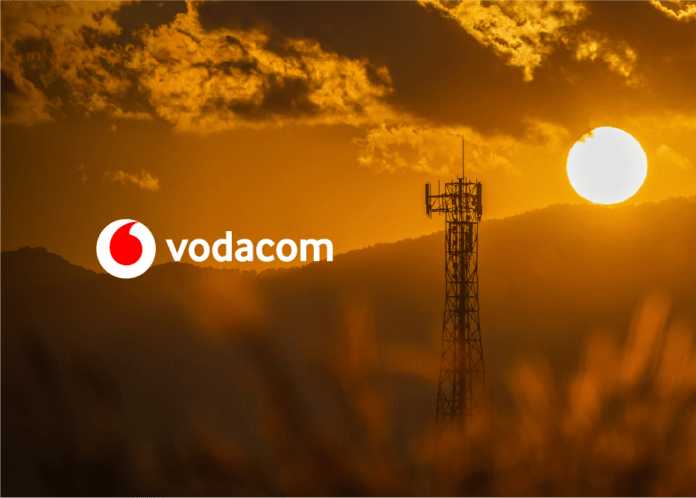One of Vodacom’s strategic objectives is to cover all of Mozambique with a quality signal network and the fastest internet on the market.
Profile Mozambique: What actions is the company taking to achieve this goal?
Vodacom Mozambique: The expansion of network coverage throughout the country, especially in rural areas, has been one of Vodacom’s main objectives throughout its 20 years of existence. We are aware that rural areas are deprived of most of the infrastructures that support any development project, and where people’s purchasing power is low, but it is essential that these people are connected to the national communications network, which brings with it the possibility of benefiting from financial services through the company’s platform.
In the last two years, Vodacom has invested in expanding the network by around 300 new stations in rural areas, spread across all the Provinces and covering more than 200 Administrative Posts. 40% of the stations were implemented in the provinces of Nampula and Zambezia, which, as you know, are the most populous provinces in our country.
PM: What are the most critical areas in terms of (poor) network coverage?”
VM: Mozambique is a vast country, so the challenge of extending network coverage still exists, generally speaking, in rural areas and outside urban centers. In this respect, we still have a notable coverage deficit in several districts of Cabo Delgado Province, where for reasons associated with security, we have been unable to target investment in this region. We also note that the provinces of Zambézia, Tete and Nampula, as well as Maputo and the north of Gaza province, still have enormous potential for rural expansion. In cities and urban areas, improving signal quality is a constant challenge for us.
MP: What are the main challenges in the process of expanding Vodacom’s network in Mozambique?
VM: The major challenge in implementing network expansion projects is associated with the lack of basic infrastructure, particularly access. There are areas where access is practically non-existent, especially in the rainy season, but we are challenged to put telecommunications infrastructure there for the people. The lack of an electricity grid is another challenge that has an impact on the cost of investing in power systems for telecommunications stations.
Another fact that should be highlighted here is the theft and vandalization of our infrastructure, which has reached levels that discourage investment in some areas. The constraints to which we are exposed due to the insurgency in the north of Cabo Delgado Province do not allow us to expand the network to the various localities and administrative posts at the same level as we have done in the other regions of the country.
Vodacom has partnered with Business Insider Africa to implement a project to install World Mobile aerostats in Mozambique.
PM: When will this project be implemented?
VM: In fact, a pilot experiment is underway which consists of implementing a solution to cover large geographical areas. The solution consists of deploying a “balloon” called an “aerostat” at a height of between 100 and 300 meters, making it possible to cover a large area. This experiment is taking place in the village of Chitar, Zulo Administrative Post, Massingir District. As mentioned, the experiment is still underway, so we’re still collecting data that will allow us to conclude whether or not the solution is viable for possible massification.
PM: Bearing in mind that this is a system that is more commonly used in more remote areas, in which areas do you plan to install these systems in Mozambique, in order of priority?
VM: As mentioned earlier, the experiment has not yet been completed, so it is premature to confirm which areas could be covered in the event that it is approved, including the business model to be implemented.
MP: What benefits is this system expected to bring to Mozambicans and to Vodacom?
VM: The benefits will be enormous since the system will make it possible to extend coverage to very large areas for which, under normal conditions, we would need to install several telecommunications towers. In short, it could speed up our ambitious rural expansion plan.
Vodacom recently joined the 2África consortium in the project to land the first submarine fiber optic cable in Mozambique.
MP: What change will this technology bring to the telecommunications sector in Mozambique?
VM: The landing of the 2 Africa cable in Mozambique will allow direct access to the International Gateway for communications in Mozambique, and in this way, guarantee better resilience in Communications and greater capacity to provide services such as 4G, 5G and Broadband to millions of people across the country.
PM: What benefits will Mozambicans enjoy from this technology?
VM: The benefits include greater data transmission capacity, better quality Internet access and connectivity, as well as boosting access to Digital Services.
MP: What are the main areas that have benefited?
VM: The benefits include greater data transmission capacity, better quality Internet access and connectivity, as well as boosting access to Digital Services.
MP: What are the main areas that have benefited?
VM: For the 2Africa Project we have two submarine cable landing points, one in Maputo and the other in Nacala, but since we also have our network connected to these two points, the benefits will be reflected throughout the country. It should be noted that of all the cables that pass along our coast, the 2Africa project cable is the only one that will have a mooring point outside Maputo.
MP: How many Mozambicans will be connected to the telecommunications network with the introduction of these measures?
VM: With the expansion projects we have been implementing, we expect to reach over 5 million people.
PM: How much is the company investing in the network expansion process?
VM: The investments made in the last two years to expand the network in rural areas are around 25 million US dollars.




